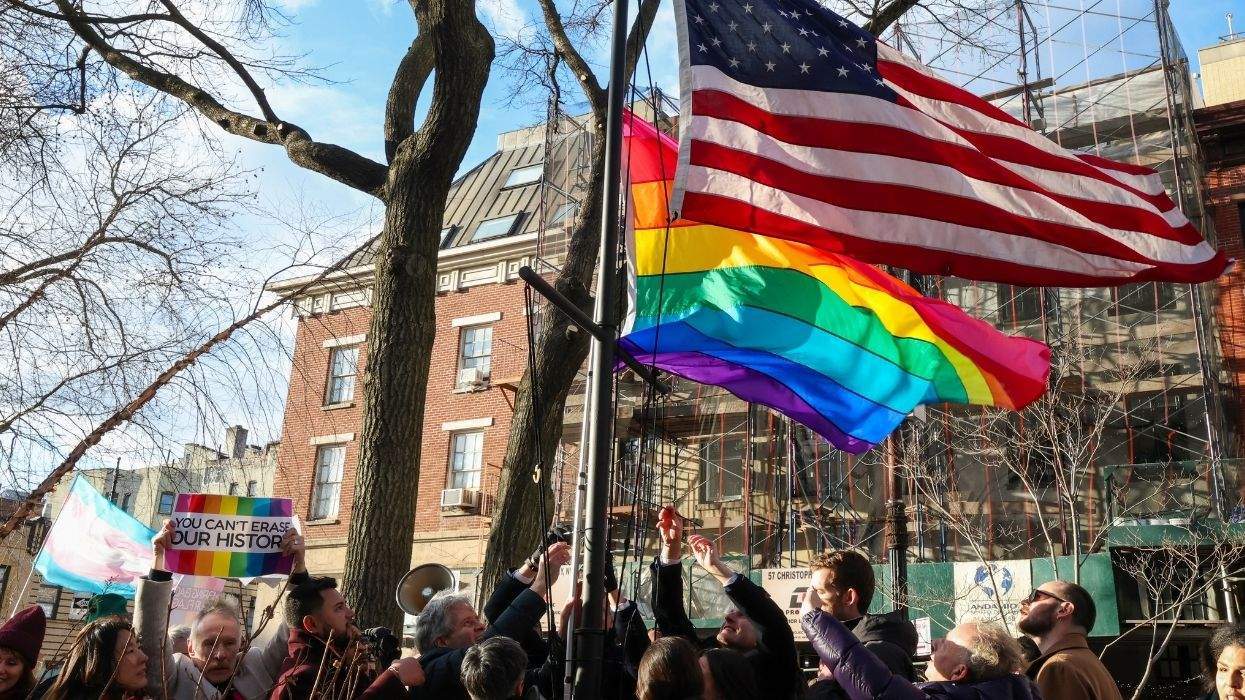The U.S. Supreme Court ruled in U.S. v. Skrmetti that states may ban transgender minors from receiving gender-affirming medical care—a landmark decision that deals a devastating blow to trans youth, their families, and the doctors who treat them. In a 6–3 decision issued Wednesday, the justices upheld Tennessee’s law banning gender-affirming hormone treatments and puberty blockers for transgender minors, ruling the restrictions do not violate the Equal Protection Clause of the 14th Amendment.
Keep up with the latest in LGBTQ+ news and politics. Sign up for The Advocate's email newsletter.
At issue was whether such bans violate the Constitution by discriminating against individuals based on their gender identity. The six conservative justices upheld Tennessee’s prohibition on gender-affirming care for minors, Senate Bill 1, which bans the use of puberty blockers and hormone therapy for trans adolescents. Writing for the majority, Chief Justice John Roberts stated that the ban does not violate the Equal Protection Clause of the 14th Amendment and is subject only to rational basis review, rather than heightened scrutiny.
Related: Justice Sonia Sotomayor slams Skrmetti ruling as 'state-sanctioned discrimination'
“SB1 prohibits healthcare providers from administering puberty blockers or hormones to minors to treat gender dysphoria, gender identity disorder, or gender incongruence, regardless of the minor’s sex,” Roberts wrote. “The Equal Protection Clause does not resolve these disagreements.”
The ruling rejects arguments from families and the Department of Justice that the law unlawfully discriminates based on sex and transgender status. Roberts compared the case to Geduldig v. Aiello, a 1974 decision that permitted pregnancy exclusions in disability insurance, asserting that Tennessee’s law targets medical procedures, not identities.
Related: What is U.S. v. Skrmetti, the Supreme Court case that could change gender-affirming care forever?
Related: Tennessee AG: It was God's will for him to defend gender-affirming care ban at Supreme Court
In a scathing dissent, Justice Sonia Sotomayor said the Court was “retreating from meaningful judicial review exactly where it matters most” and was “abandon[ing] transgender children and their families to political whims.”
Joined by Justices Ketanji Brown Jackson and Elena Kagan (except for one section), Sotomayor argued that the Tennessee law discriminates both by sex and by transgender status, writing that it “expressly classifies on the basis of sex and transgender status,” since “male (but not female) adolescents can receive medicines that help them look like boys, and female (but not male) adolescents can receive medicines that help them look like girls.”
Sotomayor sharply criticized the majority’s application of the lowest level of constitutional scrutiny. “By refusing to apply heightened scrutiny, the majority renders transgender Americans doubly vulnerable to state-sanctioned discrimination,” she wrote, warning that the court had “do[ne] irrevocable damage to the Equal Protection Clause and invite[d] legislatures to engage in discrimination by hiding blatant sex classifications in plain sight.” The dissent emphasized the life-threatening consequences of denying medically recommended care.
“Access to care can be a question of life or death,” Sotomayor wrote, citing evidence that untreated gender dysphoria can lead to “severe anxiety, depression, eating disorders, substance abuse, self-harm, and suicidality.” She pointed to studies showing transgender youth have disproportionately high rates of suicide attempts and noted that care such as puberty blockers and hormone therapy can “meaningfully improve the health and wellbeing of transgender adolescents.”
Kagan, in a separate dissent, agreed with Sotomayor that Tennessee’s law should have been reviewed under heightened scrutiny and criticized the court for failing to send the case back to lower courts for proper constitutional review.
The decision affirms a Sixth Circuit ruling overturning a lower court injunction and paves the way for more than 20 similar laws nationwide to remain in effect, despite unified opposition from every major U.S. medical association.
Related: Key LGBTQ+ Supreme Court decisions to watch this term and what you need to know
American Civil Liberties Union attorney Chase Strangio, the first out transgender lawyer to argue before the high court, contended the law unlawfully targets trans youth by denying them care that remains available to cisgender minors.
LGBTQ+ legal advocates denounced the ruling. “The Court today failed to do its job,” said Jennifer Levi, senior director of transgender and queer rights at GLAD Law. “When the political system breaks down and legislatures bow to popular hostility, the judiciary must be the Constitution’s backbone. Instead, it chose to look away, abandoning both vulnerable children and the parents who love them. No parent should be forced to watch their child suffer while proven medical care sits beyond their reach because of politics.”
Shannon Minter, legal director at the National Center for LGBTQ Rights, said the ruling “abandons transgender youth and their families to political attacks.” Minter added that the majority “ignored clear discrimination and disregarded its own legal precedent by letting lawmakers target young people for being transgender,” and emphasized that “healthcare decisions belong with families, not politicians. This decision will cause real harm.”
















Charlie Kirk DID say stoning gay people was the 'perfect law' — and these other heinous quotes
These are some of his worst comments about LGBTQ+ people made by Charlie Kirk.